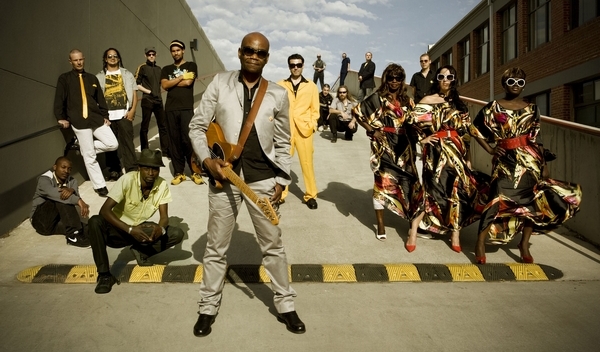“None of us are burned out yet, fortunately,” trumpet/keyboardist and band leader Mike ‘McDuck’ Olsen says. “I think a lot of bands that are three years old or have one record or no record at all, they have these very specific sounds. It’s like they sprang fully formed from the head of their musical influences which is not how we did it at all. We did a lot of musical soul searching, well, I’m sugar-coating it. What I mean is we wrote a lot of bad songs; we wrote a lot of questionable records that you can only find on eBay. So I think we probably wouldn’t have lasted if by some bizarre act of God we’d become somehow notable in the early days because we just didn’t have a sound.”
The band is a cacophony of musical skill, but in the earlier days, Lake Street Dive were victims of being clever for clever’s sake. “We were lost, musically,” he says. “These things go hand in hand; you get attention because you’re worth paying attention to and we just weren’t worth paying attention to for five, six, seven years. I don’t know why we stayed together for that long really, in the end that’s the crux of it, we stayed together when other bands would’ve said, ‘Screw this.’ We were pals and we weren’t in it for the money. Now we have the touring chops and the ability to keep doing this.”
Despite having the musicianship under his belt after years of study, Olsen is honest enough to admit that songwriting is a different beast altogether. “I’d love to be able to say that I always knew that we were searching [for a better sound] but I think that would be giving myself too much credit,” he says. “Every new song was a step in the right direction and every time we said, ‘Oh my God, this is the best song we ever wrote,’ it probably was at that point. That excitement of improvement keeps you going because every good song was so much better than the last.”
Their eventual sound, this unique blend of genres (a term so oft used you probably just switched off, but don’t), managed to collide razor sharp musicality with pop infectiousness and indie edge. “That gets into the happy accident of the band,” he explains. “The four of us were the first four people in Lake Street Dive because we were unique in music school, because we always did err on the side of simplicity and fun. It’s not like I took a poll when I started the band but the unquantifiable, magical part of this was that we learned, only after playing together for a year or so, that we all liked the same sort of music. I think we all assumed that because we were all studying jazz that we all must love jazz but that’s not actually the case. We all have a healthy appreciation for jazz but were on a brief tour. We realised that we could all sing every word to every Paul Simon song that came on the radio and we saw the common thread – we didn’t care if the music was complex we shared the joy of music.”
The band now have the unenviable task of following up on their breakthrough album. While finding your sound can be a lonely, thankless task, releasing an album to a fresh and adoring fan base eager to be as impressed as they were the first time can be outright daunting. How is the new material differing to Bad Self Portraits? “In the past, we’d write the songs and then begin playing them in front of our audience and so by the time we get into the studio we record the songs the way we’ve been playing them for a year or six months or whatever,” he says. “The songs are road tested, tried and true. Because of the last year that we’ve had being far and away more intense than any other year we haven’t worked up new material in the same way we used to, it’s been such a different experience preparing for this album. We have 25 new songs, unrecorded – way too much for one record and way too much for a double record – so we have no idea what the identity of this new record will be. The place we’re finding ourselves right now is both exciting and 100 per cent mortifying.”
BY KRISSI WEISS







